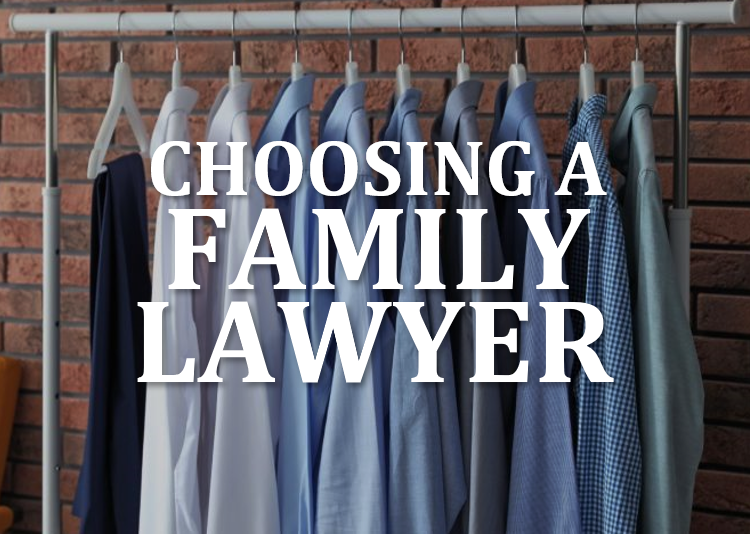Asking the right questions will help you find the right fit

The truth is that sometimes in life, you need a family lawyer: To help with estates, Wills and powers of attorney; for property division and mortgage agreements; for marriage and co-habitation agreements; and, yes, for separation, divorce and child custody agreements. It’s a good idea – especially if you have a spouse, children, or aging parents who may need extra care – to have a long-term relationship with a lawyer who can get to know your situation and needs over time.
Unfortunately, many people go without a lawyer because they think the process of finding one is going to be arduous, stressful or expensive. It doesn’t have to be. Here are 7.5 tips that’ll make it easier to find the right lawyer for your family, without pulling your hair out or spending a lot of money.
1. Make a list of your requirements (present and prospective)
A young couple just starting out will have different legal requirements than an older couple with grown children and a blended family. People with extensive real estate holdings or complicated financial assets may want to choose a legal firm which can offer family law and tax planning under the same roof. The more you know about what you need, the easier it will be to choose the right lawyer or law firm.
2. Think about the kind of person you’d most like to work with
Do you prefer to work with brisk, businesslike types in a large legal firm, or would you feel most comfortable with a friendly, down-to-earth lawyer who works out of his/her own small office?
3. Ask friends and family if they’d recommend anyone
One of the best ways to find a lawyer with the right ‘fit’ for you is to ask people you trust who they trust. Don’t be afraid to ask questions: “Do you like your lawyer?” “Do you think they’re honest with their advice and reasonable about billings?” “Do they respond promptly or do they take two weeks to return a call?”
3(b). Consider a Collaborative Law practitioner
The Collaborative approach, most often used in separation and divorce proceedings, commits the parties involved, and their lawyers, to a solution that is less conflict-prone, more family-centric, and keeps the process out of the courtroom – which can make a huge difference in time, money and peace of mind. Not all family lawyers are Collaborative Law practitioners, but it’s worthwhile to find one that is.
4. Don’t just choose the first person who shows up in a Google search
It’s fine to use Google to get an idea of the available family lawyers in your area, but take the time to really read their websites before you make an appointment. Just because Google says they’re popular and successful doesn’t mean they’re right for you and your family.
5. Create a shortlist
Between recommendations from friends and family and some online research, come up with a shortlist of 3-5 lawyers who look like they have the right fit. (Best idea? Make a quick list of each one’s pros and cons, and the specific questions you might have for them.)
6. Ask for a preliminary consultation
All the research in the world is no substitute for meeting a potential lawyer in person. However, this is where many people get stuck because they think that even a 30-minute ‘meet and greet’ with a prospective lawyer will cost a lot of money. This isn’t always the case. Many lawyers offer a ‘free’ initial consultation; some will charge a nominal fee (i.e. $100-$200 for a one-hour meeting). Don’t hesitate to call and ask – how you’re treated in that first phone call can tell you a lot about the lawyer and law firm all by itself.
7. Double-check
You’ve made your shortlist, met with a couple of lawyers, and you think you’ve found the right one for you. Great! But before you sign anything, double-check with the Law Society of Upper Canada. They can confirm that the lawyer you’re about to choose is properly licensed and in good standing.
Follow these 7.5 steps and you’re almost guaranteed to end up with a family lawyer you like and trust – and who can make a real difference in your life, and that of your family, in the long term.
